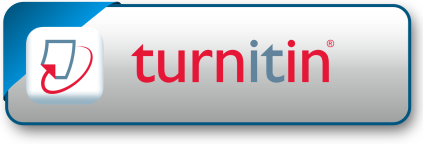PELIBATAN PEMUDA DALAM MEMPERKUAT KOMUNIKASI KEBIJAKAN TRANSISI ENERGI DAN PRESIDENSI G-20
DOI:
https://doi.org/10.24853/swatantra.21.2.207-212Keywords:
Pelibatan pemuda, Komunikasi Kebijakan, Transisi Energi, G-20Abstract
Tahun 2022, Indonesia menjadi tuan rumah G-20. Negara-negara G-20 merupakan pendukung utama ekonomi global, menyumbang 80% produk domestik bruto (PDB) dunia, serta menyumbang 81% emisi karbon dari sektor energi, dan mengonsumsi 77% energi dunia. Oleh karena itu, Transisi Energi menjadi salah satu dari tiga isu prioritas pada perhelatan G-20. Posisi strategis Indonesia sebagai satu-satunya perwakilan ASEAN di G-20, berperan penting dalam mensosialisasikan kebijakan energi dan mempercepat transisi energi global. Sektor unggulan kebijakan energi, Kementerian Energi dan Sumber Daya Mineral (KESDM) dalam dua tahun terakhir melibatkan pemuda dalam penguatan komunikasi kebijakan energi untuk meningkatkan pengetahuan, pemahaman dan partisipasi masyarakat dalam transisi energi. Kajian ini bertujuan untuk mengeksplorasi bagaimana keterlibatan pemuda dalam memperkuat komunikasi kebijakan transisi energi dan mendukung Presidensi G-20. Melalui pendekatan kualitatif, penelitian ini menggunakan teknik pengumpulan data berupa telaah dokumen pemerintah, studi literatur, dan wawancara mendalam dengan informan dari Biro Komunikasi, Layanan Informasi dan Kerjasama (KLIK) Kementerian ESDM. Hasil kajian menyebutkan bahwa Kementerian merancang pesan komunikasi tentang pelibatan pemuda dalam program bertajuk 'Patriot Energi', Gerilya, Kolaborasi Energi, melalui berbagai program kehumasan seperti event, road show, penghargaan, dengan menyederhanakan pesan transisi energi untuk memperkuat. komunikasi kebijakan energi dan G-20.References
Arababadi, A., Leyer, S., Hansen, J., Arababadi, R., & Pignatta, G. (2021). Characterizing the theory of energy transition in luxembourg, part two—on energy enthusiasts’ viewpoints. Sustainability (Switzerland), 13(21), 1–18. https://doi.org/10.3390/su132112069
G20 Insights. (2022). G20 needs to provide inclusive energy system to accelerate global energy transition. https://www.g20-insights.org/2022/02/28 /g20-needs-to-provide-inclusive-energy-system-to-accelerate-global-energy-transition/
Harris, S. H. (2018). Mampukah Indonesia Mewujudkan Energi Terbarukan? Prisma, 37, 69–78.
Markowitz, M. E., & Guckian, L. M. (2018). Climate Change Communication : Challenges, Insights, and Opportunities. Pshychology and Climate Change. https://doi.org/10.1016/B978-0-12-813130-5.00003-5
Martin, G., & Saikawa, E. (2017). Effectiveness of state climate and energy policies in reducing power-sector CO2 emissions. Nature Climate Change, 7(12), 912–919. https://doi.org/10.1038/s41558-017-0001-0
Mu, R., Li, Y., & Fu, Y. (2018). Can government communication facilitate policy understanding toward energy conservation? Evidence from an old industrial base in China. Sustainability (Switzerland), 10(9). https://doi.org/10.3390/su10093222
Oktaviani, K. (2022). Jalan Terang Transisi Energi Negara-negara G20. Media Indonesia. https://mediaindonesia.com/ opini/489687/jalan-terang-transisi-energi-negara-negara-g20
Patrianti, T. (2020). Remaja dan Komunikasi Perubahan Iklim. In Hubungan Antar Manusia dalam Konteks (Issue June, pp. 105–113). Total Media Yogyakarta.
Patrianti, T., Shabana, A., & Tuti, R. W. (2020). Government Risk Communication on Greenhouse Gas Emission Reduction To Tackle Climate Change. Jurnal Penelitian Komunikasi Dan Opini Publik, 24`(2), 156–170. https://doi.org/ 10.33299/ jpkop.24.2.3416
Ruang Energi. (2021). Peran Generasi Muda dalam Transisi Energi di Indonesia. https://www.ruangenergi.com/peran-generasi-muda-dalam-transisi-energi-diindonesia/
Smith, H., & Gilbert, C. (2018). Communication barriers and lessons learned in energy policy. Sustainability (Switzerland), 10(2). https://doi.org/ 10.3390/su10020449
UNFCCC. (2012). Article 6 of the Convention Draft conclusions proposed by the Chair Recommendation of the Subsidiary Body for Doha work programme on Article 6 of the Convention (Issue December).
Ustun, T. S., & Hussain, S. M. S. (2019). Secure communication modeling for microgrid energy management system: Development and application. Energies, 13(1). https://doi.org/10.3390/ en 13010068
Downloads
Published
Issue
Section
License
Copyright aims to protect the specific way the article has been written to describe an experiment and the results. SWATANTRA is committed to its authors to protect and defend their work and their reputation and takes allegations of infringement, plagiarism, ethical disputes, and fraud very seriously. SWATANTRA is published under the terms of the Attribution-NonCommercial 4.0 International (CC BY-NC 4.0). Authors retain copyright and grant the journal right of first publication (online and print) with the work simultaneously. We use the restrictive license (non-commercial) as follows:
BY (attribution): Users are allowed to share, distribute and redistribute the published article in any medium or format, with an identification of the authors and its initial publication in this journal. Authors are encouraged to post and distribute their articles immediately after publication (e.g., institutional or public repositories, personal websites). Authors are allowed to enter into additional contractual arrangements for the non-exclusive distribution of the published and an acknowledgment of its initial publication in this journal.
NC (non-commercial): Users are not allowed to use the article commercially without the permission of the authors. Authors agree explicitly that the published article is indexed worldwide in databases, repositories, and indexation services, even if these services operate on a commercial basis. Authors grant SWATANTRA explicit the right to include the published articles in databases, repositories, and indexation services. You can see examples of personal and commercial use on this link.
Below you may find the full text of the license signed by authors.
License
- License to Publish
The non-commercial use of the article will be governed by the Attribution-NonCommercial 4.0 International (CC BY-NC 4.0). The author hereby grants SWATANTRA an exclusive publishing and distribution license in the manuscript include tables, illustrations, or other material submitted for publication as part of the manuscript (the “Article”) in print, electronic, and all other media (whether now known or later developed), in any form, in all languages, throughout the world, for the full term of copyright, and the right to license others to do the same, effective when the article is accepted for publication. This license includes the right to enforce the rights granted hereunder against third parties.
- Author’s Warranties
The author warrants that the article is original, written by stated author/s, has not been published before, contains no unlawful statements, does not infringe the rights of others, is subject to copyright that is vested exclusively in the author and free of any third party rights, and that any necessary written permissions to quote from other sources have been obtained by the author(s).
- User Rights
Under the Creative Commons Attribution-Non Commercial 4.0 International (CC BY-NC 4.0) license, the author(s) and users are free to share (copy and redistribute the material in any medium or format) and adapt (remix, transform, and build upon the material). Users must give appropriate credit, provide a link to the license, and indicate if changes were made.
- Rights of Authors
Authors retain the following rights:
- Copyright, and other proprietary rights relating to the article, such as patent rights,
- The right to use the substance of the article in future own works, including lectures and books,
- The right to reproduce the article for own purposes, provided the copies are not offered for sale, and
- The right to self-archive the article.
- Co-Authorship
If the article was prepared jointly with other authors, the signatory of this form warrants that he/she has been authorized by all co-authors to sign this agreement on their behalf, and agrees to inform his/her co-authors of the terms of this agreement.








